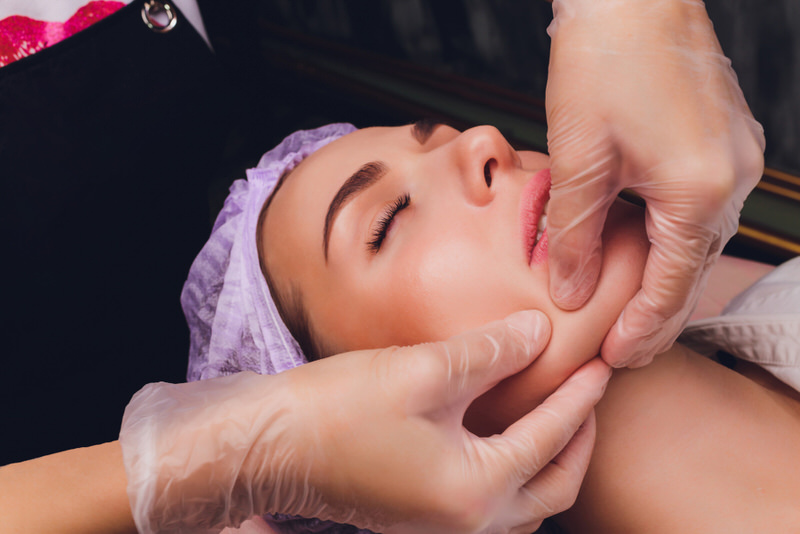If you have sudden pain on one side of your jaw, it could be due to different underlying health issues such as TMJ disorders, bruxism, sinusitis, dental issues, trigeminal neuralgia, osteomyelitis, and tumors or cysts. This pain could’ve been present for a long time but can increase over time with intensity if ignored. In the beginning, there are many ways you can subside the pain at home, but after getting the relief, you should visit your doctor to find out the real issue of jaw pain.
Sudden jaw pain is no joke, and if you experience it on one side, that means you’ve been going through underlying health issues but chose to ignore the warning signs. You must have issues and must’ve faced pain on one side of your jaw earlier but somehow didn’t think of it as a warning sign.
There are multiple reasons why this could be happening, as different issues must be making you feel this sudden pain in your jaw.
It directly affects and almost makes it impossible to consume any food or water. So, let’s take a look at what these different issues might be. If you’ve problems with your jaw or there are some underlying health issues.
Common causes why your jaw is in pain

Let’s take a look at some of the common causes which could be causing your jaw to hurt on one side.
Temporomandibular joint (TMJ) disorders
TMJ, also known as TMDs, are the most common causes of pain in your jaw and affect as many as 10 million Americans.
Temporomandibular joints are the hinge joints on each side of your jaw. It involves the joint that connects your skull and jaw. There is a disc that separates the bones in this joint and helps it move properly.
If this disc becomes misaligned or the joint gets damaged, you could experience pain on one side or both sides of the jaw.
Bruxism
Commonly known as teeth grinding is probably the most well-known factor that causes jaw pain in people. It refers to grinding or clenching of the teeth, serving no function, that continues over time, and causes a person’s jaw to hurt. It stems from severe stress and anxiety.
Grinding or clenching of one’s jaw leads to damage and destruction of their teeth, infections in gum, and fatigued jaw joints.
This grinding usually occurs during the night when the person is sleeping, as it’s easier to control it during the day. A person suffering from this will wake up complaining of jaw pain on one side or both of them.
Sinusitis
A lot of factors contribute to having sinus issues. It could be because of allergies, medical conditions, or if you’ve has a cold. The inflammation in your nasal cavities can cause sinusitis.
If the sinus cavities behind your cheeks, known as the maxillary sinuses, are inflamed, you might feel pain in one or both sides of your jaw.
Dental issues
This is a given that if you’re facing pain in your jaw if it’s gradual or sudden, it can be traced to dental or oral health concerns.
Different causes include cavities, an abscessed tooth, wisdom tooth, gum disease, tooth decay, missing or misaligned teeth, or tooth grinding.
All these issues don’t occur suddenly but happen gradually. If you ignore them, you’ll face sudden pain, which is much more difficult to handle.
Rare causes why your jaw is in pain
Trigeminal neuralgia
This can be categorized as a chronic condition that generally results from abnormal pressure on the trigeminal nerve. This pressure prevents the nerve from functioning correctly, leading to severe pain.
An injury or brain abnormality can also cause the condition. The pain, if ignored, can become unbearable.
Osteomyelitis
It’s an infection of the bone caused by the bacteria that travels through the body’s bloodstream and can affect bones and tissue. If caused in the jaw, it impacts the TMJ and leads to pain jaw that your experience, facial swelling, and fever.
The infection occurs because bacteria might have entered the body due to poor oral hygiene, oral surgery, or procedure or a jaw fracture. It’s even more common in men than women and usually occurs in the lower jaw bone.
Tumors and cysts
Tumors are masses of tissue, and cysts generally contain fluid. Both of them can be a cause of pain in your jaw. They are often not cancerous, but they can still affect your body in many ways. They will definitely impact your jaw the most, from your gums to your teeth, destroying your bones and tissue of the mouth.
6 tips if your jaw is hurting
If you have mild or slight pain on one side of your jaw, there are things you can do at home to provide relief to it. You wouldn’t need medical treatment for temporary pain, but treating it at home and then visiting your doctor to find out the cause will do the trick.
1. Heat or ice packs
This is for immediate relief purposes when using either a heated or an ice pack to nurse your jaw.
If you don’t have an ice pack, you can take the ice in a plastic bag, wrap it in a cotton cloth, and use it for nursing for around 10-15 minutes. Then let it rest for 10 minutes and repeat the process 2-3 times.
Using a warm pack, just run a towel in hot water, squeeze all excess water, and then use it on the jaw area. It helps with muscle relaxing and relieving your jaw from pain. Make sure it isn’t cold or warm in the extreme to hurt your skin.
2. Medications
Obviously, medicines like acetaminophen (Tylenol), ibuprofen (Advil), and other over-the-counter pain medications can help relieve pain. But only for some time, after the pain has subsided, it’s better to see your doctor.
3. Soft food
Chewing hard food can make things worse for you and your jaw. So, try to eat soft foods as this will help keep the pain away. This won’t put stress on your jaw at all, and so your jaw muscles can remain as relaxed as possible.
4. Massage

You can even provide some relief by massaging your jaw. All you need to do is use your index and middle finger to press onto the sore areas, such as the area before your ear where your jaw joints meet.
Rub in a circular motion 5-10 times, rest and open your jaw slowly and close it again. Repeat this exercise.
5. Relaxing techniques
Try to relax your jaw as much as you can. This includes trying not to clench or grind your teeth. This can be made far easier if you try to calm down your stress and anxiety, which can be worked upon by meditation and yoga.
6. Sleeping position
Maybe try a different type of sleeping position or change your mattress. This can help you immensely in providing relief to your jaw. Switching your sleeping positions can help your jaw muscles relax and not put too much pressure on one particular side.
See doctor if…
This is a tricky business to get to know when to see a doctor. If the pain in your jaw has been there for some time, then decide to go to a doctor. If it’s gradually increasing in intensity and has been there for some time, then definitely visit your doctor.
Some signs which you should look out for:
- Trouble in eating, drinking, or swallowing your food
- Difficulty in moving your jaw and mouth
- A swelling or fever has appeared
- Sudden bursts of severe pain or weird smell coming from the mouth
Frequently Asked Questions (FAQs)
Why does my jaw hurt on one side wisdom tooth?
A wisdom tooth coming out is a big cause of pain in the jaw for many people. This tooth coming out pushes against your teeth and makes them move. In turn, it can discomfort your jaw and thus causes pain. In addition, it can feel stiff and sore and cause it to swell up as well.
What does cardiac jaw pain feel like?
In rare cases, jaw pain can be an early sign of a heart attack. Occurring primarily in women, you might experience other symptoms and signs too. If accompanied by jaw pain, these keep coming and going and should be a sign of worry for you.
To summarize
Your jaw experiencing pain on one side is a sign of some underlying health issue you must be facing. Unfortunately, many people ignore the slight pain, which is a sign initially, only to get severe pain later on in their mouth and jaw. This pain could interfere with your eating and drinking abilities too.
Although many issues must be causing this pain in your jaw, you can’t ascertain your issue. So, visiting a doctor at an appropriate time is the right thing to find the cause and start treating it while you still can.


